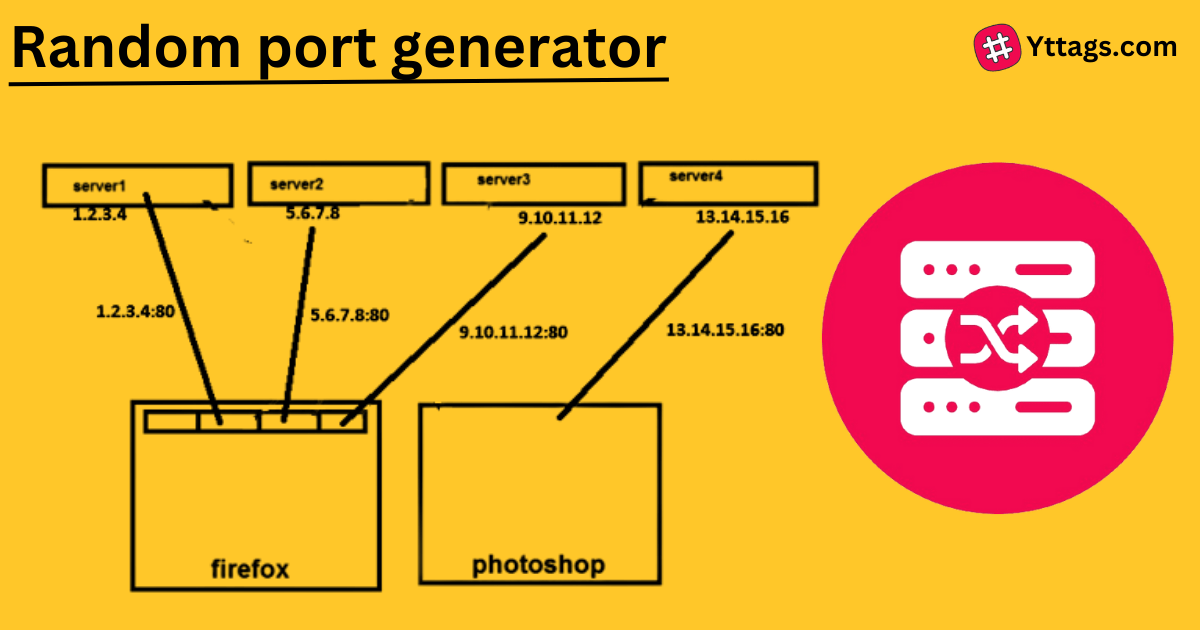Random port generator
Generate a random computer port with this simple online port generator tool. Get a unique and random port number for your network with just a click. Our random port generator excludes commonly used ports.
Random port generator
How to use this Random port generator Tool?
How to use Yttags's Random port generator?
- Step 1: Select the Tool

- Step 2: Enter The Random port generator And Click On The Generate Port Button And Check Your Random port generator Result

Discover optimal connectivity with our Random Port Generator! Find unused port numbers swiftly and ensure secure and seamless network connections!
Examples of Random Ports
| Port Number | Service Name |
|---|---|
| 8080 | HTTP Alternate |
| 21 | FTP |
| 22 | SSH |
| 443 | HTTPS |
| 25 | SMTP |
If you want to link to Random Port Generator page, please use the codes provided below!

FAQs for Random port generator
What is a Random port generator?
A Random Port Generator is a tool that generates random port numbers, facilitating the creation of diverse and non-predictable port assignments for network-related applications and configurations.
What is the range of port number?
Well-Known Ports. Port numbers can run from 0 to 65353. Port numbers from 0 to 1023 are reserved for common TCP/IP applications and are called well-known ports.
What is the use of port number?
Once the address is used to deliver data to the wanted host on the network, the port number is used to identify the process for which the data is used. This enables one host to provide more than one service. How you define the port number depends on your configuration.
How many ports are there in networking?
There are 65,535 possible port numbers, although not all are in common use. Some of the most commonly used ports, along with their associated networking protocol, are: Ports 20 and 21: File Transfer Protocol (FTP).
Why is source port random?
The computer frequently chooses the source port at random as each session has a different random source port associated with it. Routers and firewalls in the network can utilize the source port to differentiate between different communication flows or sessions.